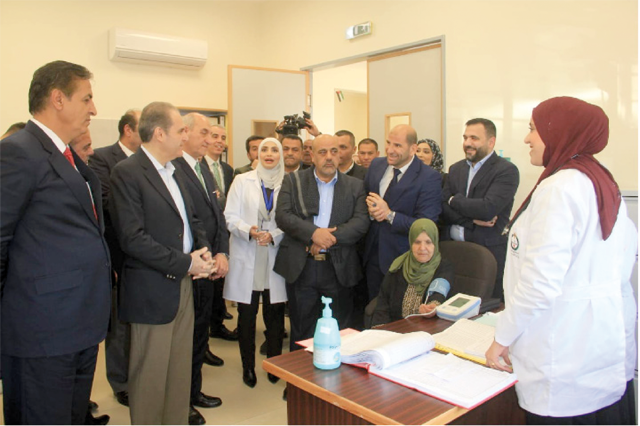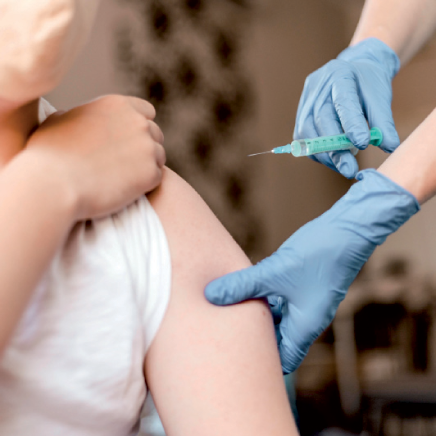You are here
Key assessments of National Expanded Programme on Immunisation under way
By JT - Aug 01,2021 - Last updated at Aug 01,2021
AMMAN — Through funding from the EU Regional Trust Fund in Response to the Syrian crisis (Madad Fund), the World Health Organisation (WHO) and Ministry of Health are collaborating to implement the “Jordan Health Programme for Syrian Refugees and Vulnerable Jordanians”.
An overall contribution of 43 million euros is aimed to strengthen primary healthcare services for Syrian refugees and vulnerable Jordanians with focus on routine immunisation and COVID-19 preparedness and response, according to a WHO statement.
The Health Ministry and WHO Country Office in Jordan are conducting two key assessments of the National Expanded Programme on Immunisation (EPI) in July and August 2021 to identify strengths and critical gaps to inform evidence-based policy decisions.
The EPI Comprehensive Review and Data-Quality Self-Assessment will target health directorates at the governorate and district level as well as primary healthcare facilities in all 12 governorates.
The EPI Review will address all components of the national immunisation programme focusing on programme management and financing, human resources management, vaccine supply, quality and logistics, service delivery, immunisation coverage, Adverse Events Following Immunisation (AEFI) monitoring, disease surveillance and demand generation, the statement said.
The Data-Quality Self-Assessment will evaluate the quality, accuracy, timeliness, and completeness of recorded and reported data on immunisation.
Health Minister Feras Al Hawari, acknowledged the partnership with the European Union supporting Ministry of Health and WHO efforts in strengthening primary healthcare in Jordan.
He emphasised the importance of conducting these assessments to establish a baseline for strengthening routine immunisation, the most cost-effective health intervention.
“Now more than ever, we prioritise strengthening routine immunisation in view of effect of COVID-19 pandemic on health system and services,” Hawari added.
EU Ambassador to Jordan Maria Hadjitheodosiou said: “The EU is committed to preventing threats to public health posed by infectious diseases. It is particularly important during these challenging times to review the National Programme on Immunisation, in order to strengthen the long-term capacity of the Ministry of Health to meet the national requirements of providing free routine immunisation for all people across the country, while reaching the most vulnerable.”
Jamela Al Raiby, acting WHO Representative to Jordan said: “The EPI Comprehensive Review is being conducted in Jordan for the first time. We firmly believe that the findings will guide Ministry of Health efforts to improve, sustain, and strengthen the National Immunisation Programme.”
Based on the findings and recommendations of the assessments, Ministry of Health and WHO will jointly plan and implement interventions to promote and strengthen routine immunisation services and extend the reach of these services to the most vulnerable populations with a focus on Syrian refugees and vulnerable Jordanians.
Related Articles
AMMAN — Minister of Health Firas Hawari on Saturday attended the opening of the Sakib and Jibeh primary health centres in Jerash, as part of
AMMAN — The European Union has committed 43 million euros, through the EU Regional Trust Fund in Response to the Syrian Crisis (MADAD), to s
AMMAN — The Measles-Rubella (MR) vaccine, which is provided free of charge for targeted children in Jordan, is safe and effective at protect

















